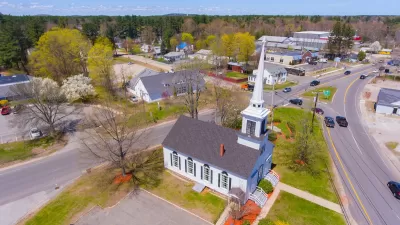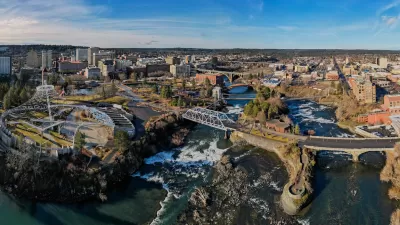A new zoning ordinance banning semi-trucks from a rural unincorporated area of Palm Beach County has prompted long-time semi-driver residents to sue for the right to continue to park their vehicles on their properties.

Two residents of The Acreage, an unincorporated part of Palm Beach County, Florida, have sued the county over its recent decision to ban semi-trucks from the neighborhood. “The lawsuit accuses the county of practicing ‘rural gentrification,’” by “seeking to attract white-collar residents into the region by slowly changing zoning ordinances to push out long-time blue-collar commercial residents” such as the plaintiffs, who park semis on their property, says an article in The Palm Beach Post.
According to the county’s new zoning ordinance, residents with trucks weighing more than 8 tons (16,000 pounds) will have to relocate the vehicles by July 1. According to the Post, the move by county commissioners came in response to complaints by other residents that “the presence of the large trucks was threatening their lifestyles.” Proponents of the ban, including the road system operator and the The Acreage Landowners Association, argue that the road system was never designed to accommodate such heavy vehicles and that allowing them would increase road maintenance costs.
The semi owners who filed the lawsuit claim the requirement to park their trucks offsite will render their businesses unprofitable and effectively lower their property values and render their properties unusable for their intended purposes (as parking for their businesses’ vehicles).
FULL STORY: 'Rural gentrification': Acreage truckers sue Palm Beach County to stop semi-truck ban

Study: Maui’s Plan to Convert Vacation Rentals to Long-Term Housing Could Cause Nearly $1 Billion Economic Loss
The plan would reduce visitor accommodation by 25,% resulting in 1,900 jobs lost.

North Texas Transit Leaders Tout Benefits of TOD for Growing Region
At a summit focused on transit-oriented development, policymakers discussed how North Texas’ expanded light rail system can serve as a tool for economic growth.

Why Should We Subsidize Public Transportation?
Many public transit agencies face financial stress due to rising costs, declining fare revenue, and declining subsidies. Transit advocates must provide a strong business case for increasing public transit funding.

How to Make US Trains Faster
Changes to boarding platforms and a switch to electric trains could improve U.S. passenger rail service without the added cost of high-speed rail.

Columbia’s Revitalized ‘Loop’ Is a Hub for Local Entrepreneurs
A focus on small businesses is helping a commercial corridor in Columbia, Missouri thrive.

Invasive Insect Threatens Minnesota’s Ash Forests
The Emerald Ash Borer is a rapidly spreading invasive pest threatening Minnesota’s ash trees, and homeowners are encouraged to plant diverse replacement species, avoid moving ash firewood, and monitor for signs of infestation.
Urban Design for Planners 1: Software Tools
This six-course series explores essential urban design concepts using open source software and equips planners with the tools they need to participate fully in the urban design process.
Planning for Universal Design
Learn the tools for implementing Universal Design in planning regulations.
City of Santa Clarita
Ascent Environmental
Institute for Housing and Urban Development Studies (IHS)
City of Grandview
Harvard GSD Executive Education
Toledo-Lucas County Plan Commissions
Salt Lake City
NYU Wagner Graduate School of Public Service





























